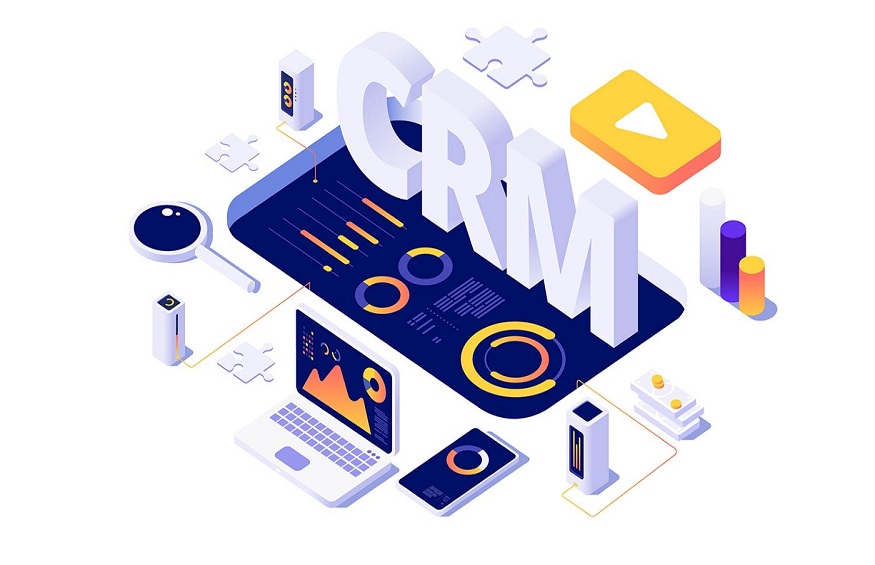In B2B, having a CRM is a considerable asset for managing customer relations and guaranteeing collaboration between your teams. This database centralizes all the strategic information on your prospects and customers. It contains in particular their personal data, as well as a history of their interactions with your company.
If its functionalities are more or less advanced depending on the software chosen, the CRM is the foundation of your strategy. All the data in it should serve your purposes. To do this, it is essential that they are accurate and up to date.
In order to send relevant offers and content to the right target, you must have access to a solid and reliable file. Thus, it is essential to ensure that it is exploitable, and this, in the long term, to maximize your commercial performance. This is where CRM data enrichment comes in.
Essential in B2B, enriching your CRM data contributes to the success of your marketing and sales campaigns. We explain in detail why.
Enrichment of CRM data at the service of Data Quality
Collecting data on your prospects and customers is useless if it is wrong, out of date or even fake. The reliability of your CRM information ensures the performance of your marketing actions . The opposite would make them not only inefficient, but also costly: the return on investment would be low, if not zero.
It is to mitigate this risk that it is essential to use CRM data enrichment. This allows you to verify and complete the information in your existing database. You can thus keep your customer file up to date and qualitatively expand your prospecting file.
Data enrichment aims to collect all the information essential to your B2B strategy. The more relevant and reliable data your CRM contains, the easier it is to implement successful campaigns, with a satisfactory ROI. The enrichment of CRM data is thus at the service of Data Quality (also called data quality management).
What is Data Quality?
Data Quality is a key subject in B2B prospecting. It designates the ability of a company to manage its data in a sustainable way so that it can be used for marketing and commercial purposes. Data quality management thus contributes to the optimization of the conversion process .
Your prospects and customers move, they change jobs, they have children, they discover new areas of interest… All the information you hold is subject to change. Therefore, if you do not maintain your CRM file, you risk accumulating inaccurate and, in fact, unusable data.
Enriching CRM data means ensuring that it remains usable. The better they are, the more valuable they are to your business. Therefore, a Data Quality approach involves verifying that the data is:
Alongside Data Quality, enriching CRM data also validates the relevance of your prospecting file, as well as your communication actions.
On the one hand, data enrichment makes it possible to verify that your BtoB prospects correspond to the profiles of your target segments . This assumes that these are clearly defined (you can rely on the creation of marketing personas ). You are thus certain of the quality of your leads, which has a positive impact on your conversion rate.
On the other hand, with an enriched database, it is easier to refine the targeting of your marketing actions . This also makes it possible to ensure profitability. The more information you have about your prospects, the more you are able to send them relevant content. Your campaigns are then more effective and more favorable to lead nurturing .
The enrichment of CRM data is then used to optimize the sales funnel. This implies that you master it and that you know all the key stages of conversion (downloading a white paper, starting a trial period, making an appointment online, etc.). You can thus feed your CRM with relevant data (which varies according to the specifics of your offer) for the qualification of the lead.
Data enrichment makes it easier to position the lead in the sales funnel to adapt your communication strategy. Certain attributes, such as company size or industry, can even fit into your lead scoring grid .
The principle of lead scoring
Lead scoring consists of assigning a score to each of your leads . This score can depend on general information about your B2B prospects (industry, company size, etc.), as well as the interactions they have with your company.
For example, opening a marketing e-mail grants 5 points, occupying a strategic position 20 points, etc. If the scoring criteria is specific to your business, the closer the point total approaches 100, the greater the potential for conversion
Thanks to lead scoring, you can thus assess the value and maturity of a lead . It is this method that makes it possible to know the position of the lead in the sales funnel. You can then define the transition point between a Marketing Qualified Lead (MQL) and a Sales Qualified Lead (SQL).



